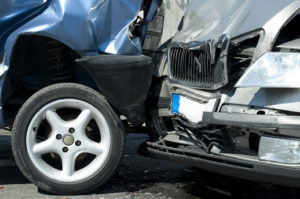How an Insurance Company Might Try to Reduce Your Compensation
 If you have submitted an auto accident claim, some insurance companies may try to dismiss or reduce your damages. The more the insurer reduces your damages, the more money they will save. Read on to learn some of the claims the insurance carrier might use in their endeavor.
If you have submitted an auto accident claim, some insurance companies may try to dismiss or reduce your damages. The more the insurer reduces your damages, the more money they will save. Read on to learn some of the claims the insurance carrier might use in their endeavor.
Inadequate Safety Systems
Cars come with different safety equipment and systems to prevent accidents or reduce injury severities in case of an accident. The insurance company might claim that you had an accident or suffered severe injuries because of your car’s inadequate safety systems. For example, the insurance company might claim that:
- Your car did not have a headrest
- You did not have your seatbelts on during the accident
- Your airbags were defective
One way to counter such claims is to prove that the inadequacy of the safety systems did not contribute to the crash. For example, if a drunk driver crashes into your car at high speed, you are not responsible for the crash, even if your car doesn’t have adequate safety systems.
Impaired Memory
Most people don’t have perfect memory. Through their adjuster or lawyer, the insurance company might use the memory issue to cast doubt on your recollection of the accident.
For example, they might ask you questions on your speed, the defendant’s driving, and the time of the crash to gauge your memory. They might then use your answers to claim that your recollection of the crash is impaired. Use the available evidence, such as witness testimony and video footage, to prove the core points of your claim.
Insufficient Evidence
The success of your accident claim hinges on the strength of your evidence. Don’t be surprised if the insurance company claims you don’t have evidence for almost every claim you make. For example, for a DUI (driving under the influence) accident, the insurance company might claim that you cannot prove that:
- Their client was intoxicated at the time of the accident
- The intoxication caused the accident
- You have suffered the damages you claim
The onus is on you to prove your claims. Ideally, you should have multiple sources of evidence for your claim. That way, you still have a strong case even if the defendant overturns one piece of evidence. For example, you can have eyewitness testimony, expert witness testimony, photographs, and the police report to prove the cause of the accident.
Driving Impairment
A common tactic of insurance companies is to claim that the plaintiff somehow caused or contributed to the crash. For example, the defendant’s insurance company might argue that your impaired driving caused the accident. Specific claims include:
- Your intoxication at the time of the crash
- Your exhaustion or sleepiness at the time of the accident
- Your speeding just before the crash
You can approach such counterclaims in two main ways. One way is to provide evidence that refutes your impairment. The other way is to provide evidence that refutes your impairment’s contribution to the crash.
Failure to Mitigate Damages
Lastly, the defense might claim that your failure to mitigate your damages contributed to your injuries. For example, they might claim that:
- You delayed medical consultation
- You did not follow your doctors’ orders
- You received unnecessary treatments
- You sought medical care at unnecessarily expensive facilities
Luckily, the defense won’t succeed if they cannot prove their claims. Use damage-mitigation measures, such as consultation of alternative medical diagnosis, to prove that you did not contribute to your damages.
An auto accident claim or case is not easy to win if you are inexperienced. Carl L. Britt, Jr. has the skills and experience to handle your case from start to finish. Contact us for a free initial consultation to determine how to handle your case.
